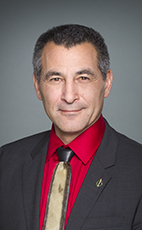Madam Speaker, I thank my colleague. I will continue with what I was saying. Unfortunately during this current sitting of the Nunavut legislature, it is looking at repealing pieces of that legislation because it does not have the resources to provide bilingual education.
Legislation like this should look at providing the territorial government, which has the responsibility for delivering education, with resources and funding so it can develop and deliver a bilingual education. This could be looked at with this legislation.
As I said, I was very proud to pass those pieces of legislation in 2008. I have heard a number of times, and even the minister has said earlier, that the government is open to amendments. I look forward to working with him and with ITK to bring amendments forward. Hopefully in a different version at third reading, after committee, I will be able to support it.

